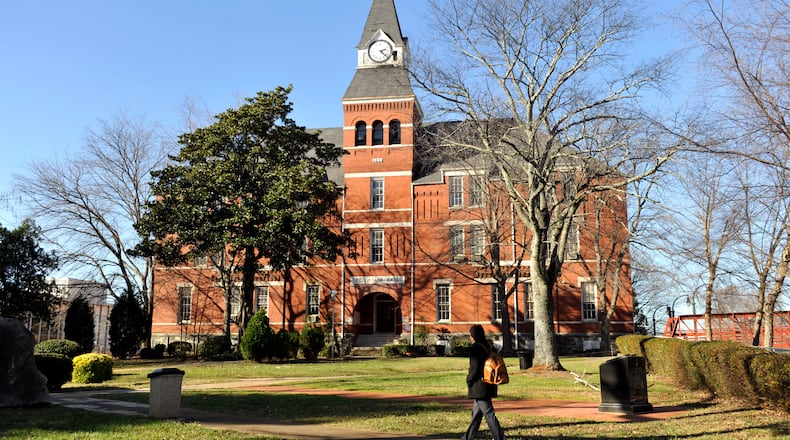The city of Atlanta is one step away from buying Morris Brown College, bringing the embattled university out of bankruptcy and allowing it to continue educating students.
The city announced Thursday that the $14.6 million proposal offered by its economic development agency, Invest Atlanta — along with Friendship Baptist Church — was the top bid for the property, and had been accepted by the college’s bankruptcy creditors committee.
Invest Atlanta contributed $10.625 million, and Friendship Church — one of two historically black churches that sold its land to make way for the future Falcons stadium — contributed $4 million. Under the proposal, both investors would own some of the buildings on the college’s property, and Morris Brown would keep some of its historic buildings to continue operations, said Melissa Mullinax, spokeswoman for Mayor Kasim Reed. The city previously said the city it would gain control of the college stadium.
It is unclear how a long-standing agreement with Clark Atlanta University, which has a claim on 17 acres of the property will be resolved under the proposed bid. A hearing on the sale and any potential objections to it is scheduled in bankruptcy court on May 29.
News of the pending deal was a welcome relief to Adrian Ford, one of 12 of the remaining 35 Morris Brown students who graduated last week.
“Morris Brown was built with the type of mindset that struggling students and adults would have somewhere to go to obtain their degrees,” he said. “It’s important to keep its doors open so that these students will have somewhere to go.”
The historically black private liberal arts college, founded in 1881, saw enrollment reach about 3,000 students at its height. The college filed for bankruptcy in August 2012 facing debts of about $30 million, and has not been accredited for over a decade. Morris Brown is a shell of its former self, and many of the buildings on the property’s 37 acres sit empty, shuttered, or in disrepair. Still, the school has stayed afloat with help from the African Methodist Episcopal church, which has loaned the college millions of dollars to pays its debts, as well as with donations from dedicated alumni.
Ford, a music major, recalls attending an introductory psychology class with only five students on the roll. And most days, just Ford and the professor would attend. He presented his final project before an audience of just one other student.
“It’s a little depressing to experience and see first hand all that you see in the news and know that the majority of it is true,” Ford said. “I had to find within myself the reason to stay and persevere in spite of knowing that the school could shut down any day while I was a student there.”
Before this proposal, Morris Brown has had various discussions with the city over purchasing the property. The college rejected a $10 million proposal from the city last year, and went after another more lucrative $20 million deal that ultimately fell through. Through its brokerage partner Jones Lang LaSalle, Morris Brown reached out and revived talks with Reed in March.
The proposed bid provides the city and Friendship church a “critical stake” in the revitalization of the Westside, Reed said in a statement Thursday.
“I believe now that we have cleared the deck of the financial albatross that hangs around the neck of Morris Brown there is no doubt that (the college) could attract thousands of students as it did before, said Derrick Boazman, a local radio host, activist and Morris Brown alum. Boazman has been critical in the city’s previous involvement in Morris Brown’s future, but says the current proposal is “exponentially” better. “When we study history, we learn that God does grant second acts.”
About the Author
Keep Reading
The Latest
Featured



